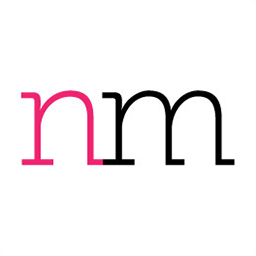New York's Boom in Yogurt Is Not So Sweet

John Fout, in the kitchen of Brooklyn-based Sohha Savory Yogurt, which he founded with his wife, Angela. Andrew Lamberson for The Wall Street Journal
At a SoHo cafe run by the yogurt maker Chobani, mini-iPad-toting servers take orders for unlikely lunches, such as plain yogurt topped with hummus, olive oil, a spice mix and lemon zest.
At the Chelsea Market stand of Sohha Savory Yogurt, diners customize their bowls of Lebanese-style yogurt with the likes of mint, olives, cilantro and spicy harissa oil.
And in Albany, legislators passed a bill this spring to make yogurt the official state snack.
New York is enjoying a golden age of yogurt, with the number of yogurt plants rising to 29 from 14 between 2005 and the present, according to Gov. Andrew Cuomo's office. The Finger Lakes region, where yogurt makers dot the landscape, has even been dubbed "The Silicon Valley of Yogurt."
At the same time, yogurt in New York is evolving from its adolescent infatuation with sugar-laden fruit flavors to a perhaps more mature phase that skews toward savory and Middle Eastern flavors.
And these latest yogurt offerings come from both large companies, such as New Berlin-based Chobani, and small startups such as Sohha, which is made in a small professional kitchen in Brooklyn's Sunset Park neighborhood.

Martin Simov, one of the employees at Sohha, makes a savory yogurt wrap for a customer. ap for a customer at Chelsea Market. Andrew Lamberson for The Wall Street Journal
"Yogurt has for too long been a sugar-delivery mechanism," said Siggi Hilmarsson, founder of Siggi's, which is made upstate in Yates County and sold nationwide.
When Mr. Hilmarsson arrived from Iceland to attend business school at Columbia University, he was stunned to find that some yogurts contain as much as 26 grams of sugar a serving. One of his first flavors was orange-ginger with an austere 9 grams of sugar in a 150-gram serving.
David Faulkner, London-based global market analyst with the market research firm Mintel, dates the beginning of the New York yogurt renaissance to the "massive growth" of Chobani, founded by Turkish immigrant entrepreneur Hamdi Ulukaya, who "blindsided everyone and launched the Greek yogurt boom."
Now, Mr. Faulkner said, "people are much more open to looking at alternate yogurts, like skyr [strained like Greek yogurt, resulting in a thick, high protein product], Lebanese styles and...kefir [a fermented milk drink]."
The savory, vegetable-based flavors produced by Blue Hill Yogurt, based in Pocantico Hills, such as beet, carrot and tomato, grew out of recipes at Blue Hill Farm's restaurants, Blue Hill and Blue Hill at Stone Barns, said David Barber, president and co-owner of Blue Hill Farm. Mr. Barber's brother, chef Dan Barber, used them as condiments.
The grass-fed organic cow's milk and vegetables come from small family farms in the Northeast, including the Barber family farm in the Berkshires; sugar content ranges between 8 and 10 grams for a 6-oz. serving.
At the Chobani cafe on the corner of Prince Street and Broadway, regular Skyler Steward, director of analytics at the nearby ad agency Code & Theory, said that as an Arab-American, he was drawn to the café's "really authentic food," including a savory yogurt soup and the za'atar spice mix topping like the one his mother makes.
Besides yogurt in a bowl topped with cucumber, olive oil, fresh mint and sea salt, other popular savory dishes feature smoked salmon and dill or watermelon and feta, items, said Peter McGuinness, chief marketing officer for Chobani.
All of the items can be ordered on the Turkish analog of the bagel, known as simit. When the cafe opened in June 2012, its menu consisted mostly of sweet options. Since then, it has evolved to being close to 65% savory, said Mr. McGuinness.
Sohha grew from an award-winning business plan that co-founder John Fout wrote for his M.B.A. program in entrepreneurship at Baruch College in 2012. He and his co-founder, wife Angela, couldn't find yogurt that was sugar- and preservative-free like in Angela's native Lebanon, so they began making their own with mostly grass-fed cow's milk from a Poughkeepsie co-op called Hudson Valley Fresh, and selling it at farmers' markets.
The couple launched their business in May 2013 when they found a space in Sunset Park that would meet the strict hygiene requirements of the yogurt-making process.
Besides two kinds of yogurt—plain and tangy—dips and beverages, Sohha sells five toppings, including a za'atar blend of thyme, sumac and sesame seeds, and an "Everything Bagel" topping that mimics the classic New York bagel.
"My wife keeps adding toppings and I tell her to stop," says Mr. Fout, "but maybe it's good; people who come for lunch every day won't get bored." Angela Fout's latest topping combination: tahini, carob molasses and hazelnuts.
By the end of the year, Mr. Fout expects to be in 15 farmers' markets and several Brooklyn and Manhattan cafes and small stores, and to hit his plant's capacity of 1,000 pounds of strained yogurt a week.
Savory yogurt, he said, "is where the future's going to be."

